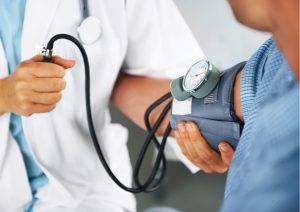 It’s normal to be nervous about your annual screenings, but having a sense of relief when hearing your results can put your mind at ease. Screenings in general are a great preventative tool that patients often neglect which can lead to an abnormality actually becoming cancer. Some screening tests can be done in an office setting and are associated with minimal discomfort while others may take place in a surgery center and use slight sedation such as a colonoscopy.
It’s normal to be nervous about your annual screenings, but having a sense of relief when hearing your results can put your mind at ease. Screenings in general are a great preventative tool that patients often neglect which can lead to an abnormality actually becoming cancer. Some screening tests can be done in an office setting and are associated with minimal discomfort while others may take place in a surgery center and use slight sedation such as a colonoscopy.
Health Screenings for Men
In men, the American Cancer Society recommends that if you have family history, genetic disorders, or other underlying risk factors, to begin screening between the ages of 21 to 29. If risk factors and family history do not apply, the average age to start screenings is 45-50.1
Alexandre Rosen, M.D., Board Certified Urologist with Physicians Regional Medical Group, believes that the earlier the screened, the better. “A frequent debate in the past 5-10 years has led to patient and physician confusion as to who should be screened. The urology community strongly believes that screening for prostate cancer is important and saves lives by making an early diagnosis.”
Before making any decisions on screenings, men should consult with their doctor about the benefits and harms of screening for prostate cancer, including the risk factors that come with testing and treatment. It is best to consult with your physician before deciding you are in need of a screening. Benjamin Barckley Storey, M.D., a Board Certified Urologist with Physicians Regional Medical Group agrees stating, “I’m a strong believer that we, as physicians, should collect all the information we need, and make an educated decision on possible treatment options going forward.”
Health Screenings for Women
Cancer screenings such as an annual pap smear can start as early as age 21 in women. Depending on your family history and potential risk factors, some women may need routine screenings for breast cancer, cervical cancer, and colon cancer.
Anne M. Rainville, M.D., Physician Regional’s Newest Gynecologist, stresses that patients understand a screening test is NOT a diagnostic test. “Just because a pap smear comes back with something that needs to be further evaluated or a mammogram needs additional views done, does not mean that a dangerous condition actually exists.”
Dr. Rainville emphasizes to her patients who have pap smear abnormalities that in most instances these abnormalities don’t even need to be treated. Abnormal pap smears are caused by the body reacting to the Human Papillomavirus (HPV) and usually the body is able to heal and clear the abnormality on its own.
Another factor to keep in mind is that all screening tests carry a risk of “false positive” and “false negative” results. Nothing is ever 100% which is why it is important to meet with your physician and discuss the options available after receiving your screening results. Physicians Regional Medical Group offers breast cancer screenings with mammograms/ultrasounds and MRI, Cervical Cancer (pap smears), colon cancer (colonoscopy/at home kits), skin surveys for skin cancer, prostate cancer screenings. Ask your provider about which screening is right for you!
For more information or to request an appointment, please call (239) 348-4221, or visit PhysiciansRegionalMedicalGroup.com.
Barckley Storey, M.D. located at Physicians Regional – 1839 San Marco Rd. Marco Island, FL 34145 and 8340 Collier Blvd. Naples, FL 34114
Anne M. Rainville, M.D. located at Physicians Regional – 6101 Pine Ridge Rd. *Will be relocating to new Pine Ridge Medical Office Bldg. across the street 6376 Pine Ridge Rd. Naples, FL 34119
Alexandre Rosen, M.D. located at Physicians Regional – 6101 Pine Ridge Rd. *Will be relocating to new Pine Ridge Medical Office Bldg. across the street 6376 Pine Ridge Rd. Naples, FL 34119
References:
1 https://www.cancer.org/healthy/find-cancer-early/screening-
recommendations-by-age.html#21-29
2 https://www.cancer.org/cancer/prostate-cancer/about/key-
statistics.html









